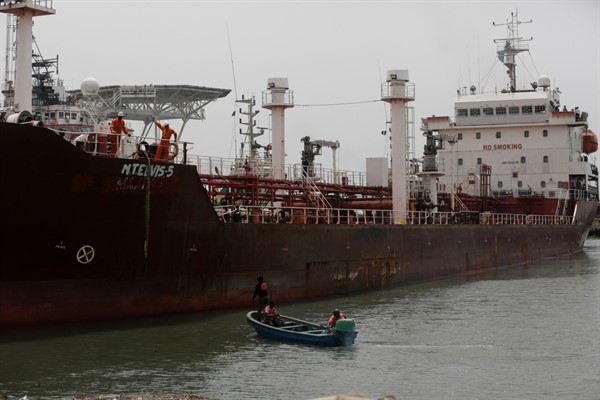In early May, a high-speed boat pulled alongside the Rio Mitong, a Panama-flagged cargo vessel, just off the coast of Equatorial Guinea. Using ladders to board the ship, a group of assailants kidnapped two crew members, taking them back to the shore, where they subsequently held them for ransom. Another ship was reportedly attacked that same night, elsewhere in the Gulf of Guinea.
These attacks are just two among many recent incidents in this vast and strategically significant body of water, where armed robbery, piracy and kidnappings at sea have escalated in recent years. Though piracy overall has decreased globally, the Gulf of Guinea—which borders more than 3,700 miles of West African coast, between Guinea and Angola—now accounts for 90 percent of maritime kidnappings in the world, according to the International Maritime Bureau. The IMB sounded the alarm and called for international cooperation after tracking an “unprecedented rise” in kidnappings in the region in 2019, up 50 percent from the previous year.
Piracy off the coast of West Africa first drew international attention in the early 2010s, as pirate activity on the other side of the continent, off the coast of Somalia and the wider Horn of Africa, was beginning to wane. By the time the crisis in East Africa had abated—thanks to a combination of international naval patrols, privately contracted security personnel and reforms to regional judicial systems—thousands of seafarers had been taken hostage off the Somali coast, and millions of dollars in ransom were paid. Meanwhile, regional governments in West Africa, along with international partners, launched their own comprehensive measures to address piracy and other crimes at sea on their side of the continent. Years later, these moves have yielded some positive results, but piracy and criminality continue in the Gulf of Guinea, and the criminal tactics of pirates and armed robbers are evolving. Coastal communities suffer the consequences, as the most vulnerable become trapped in a cycle of crime and poverty.

